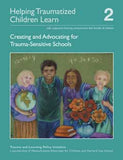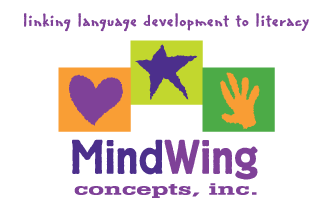Communication Skills for Traumatized, Abused or Neglected Children
The effects of abuse and neglect negatively impact children's social and academic interactions. Data shows that many children experiencing trauma, abuse and neglect demonstrate compromised narrative language skills.
The core of a narrative is the emotional response of characters in stories or real-life situations. Children who have experienced abuse/neglect produce very minimalistic narratives. Since the narratives of these children have minimal “landscape of consciousness” (emotions/plans) and minimal cause/effect, this deficit impairs their ability to “tell their story” or to explain the motivations behind their actions. Thus, language and literacy skills are essential for these children to be successful in school and beyond...
The failure to acquire literacy skills can negatively impact those students’ social, academic and vocational success, limiting their full participation in society as adults. “’Building a Better Workforce,’ a conference held in the MassMutual Room of the Basketball Hall of Fame in November, attracted 200 participants from western Massachusetts' business, education, and public policy communities and addressed the link between educational attainment — from pre-kindergarten through college and adult education — and a healthy economy. …[Through educational programs focused on communication skills and social-emotion growth], these participants had increased IQs, were more likely to graduate high school, and experienced greater wage earning by age 40.” (Taken from Cherish Every Child, www.readby4thgrade.com.)

 Maryellen Rooney Moreau, founder and president of MindWing, was recently asked to speak at a conference for Massachusetts Advocates for Children (MAC), which is a private non-profit organization dedicated to being an independent and effective voice for children who face significant barriers to equal educational and life opportunities. “For nearly 40 years, MAC has responded to the needs of children who are vulnerable because of poverty, race, limited English or disability” (taken from www.massadvocates.org). Maryellen also incorporates “Helping Traumatized Children Learn, A report and policy agenda: Supportive school environments for children traumatized by family violence” into all of her professional development workshops. This report is known throughout the United States and is available for download or purchase at www.massadvocates.org). The components of the Critical Thinking Triangle® of Braidy the StoryBraid® and the
Maryellen Rooney Moreau, founder and president of MindWing, was recently asked to speak at a conference for Massachusetts Advocates for Children (MAC), which is a private non-profit organization dedicated to being an independent and effective voice for children who face significant barriers to equal educational and life opportunities. “For nearly 40 years, MAC has responded to the needs of children who are vulnerable because of poverty, race, limited English or disability” (taken from www.massadvocates.org). Maryellen also incorporates “Helping Traumatized Children Learn, A report and policy agenda: Supportive school environments for children traumatized by family violence” into all of her professional development workshops. This report is known throughout the United States and is available for download or purchase at www.massadvocates.org). The components of the Critical Thinking Triangle® of Braidy the StoryBraid® and the  Story Grammar Marker® are particularly useful in developing narrative communication competence in children experiencing the effects of trauma, neglect and/or abuse.
Story Grammar Marker® are particularly useful in developing narrative communication competence in children experiencing the effects of trauma, neglect and/or abuse.
MindWing’s focus on addressing narratives with children who are victims of traumas, neglect and/or abuse is particularly relevant to their academic and social success as well as to their future in the workforce.

